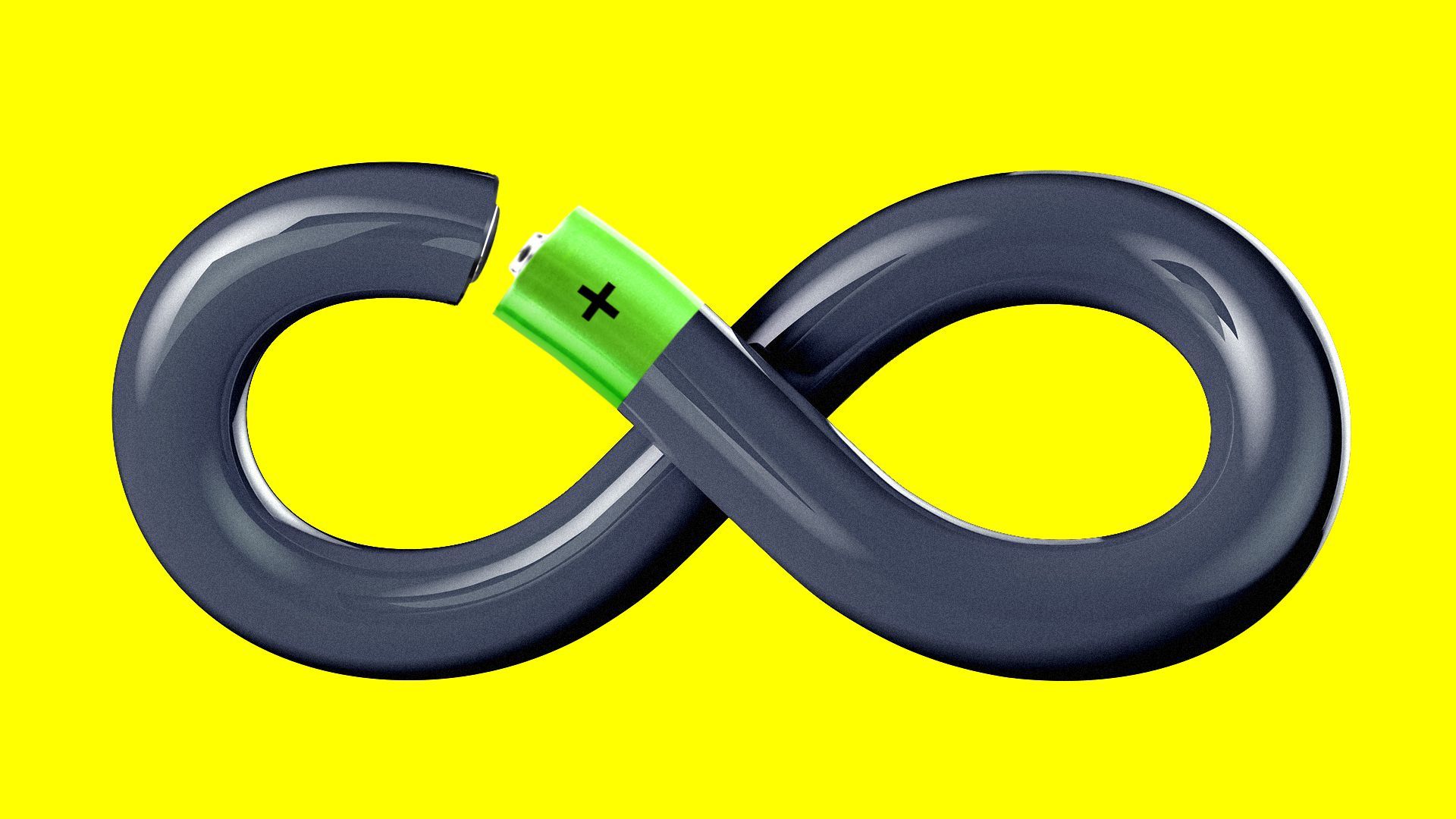EV batteries will live forever in Ford's closed-loop factories
Add Axios as your preferred source to
see more of our stories on Google.

Illustration: Annelise Capossela/Axios
Ford is partnering with battery recycling company Redwood Materials to lay the groundwork for a domestic supply chain for electric vehicle batteries that relies on closed-loop recycling.
The big picture: The long-term vision would ensure that critical battery materials like lithium, nickel, copper and cobalt are re-used in new batteries, reducing the need for imports and avoiding further environmental damage through mining.
- Creating a circular supply chain would also help reduce battery costs, making EVs more affordable, the companies say.
Context: The collaboration agreement comes one week after Redwood disclosed plans to move a huge chunk of the battery-component industry from Asia to the U.S., as Bloomberg first reported.
- Nevada-based Redwood, founded by former Tesla battery exec JB Straubel, plans to build a $1 billion-factory to produce anode copper foil and cathode materials to U.S. partners.
- Ford, which is spending $30 billion on electrification through 2025, said it invested $50 million in Redwood, part of its recent $700 million capital raise.
Details: The two companies will begin by salvaging scrap materials from Ford's planned battery joint venture with Korean battery manufacturing SK Innovation.
- BlueOvalSK plans to open "multiple" battery plants in North America starting mid-decade and will aim to use some of Redwood's recycled materials.
- Eventually, Ford and Redwood intend to salvage battery materials from EVs at the end of their life, but that's still 15 or 20 years away.
What they're saying: "Integrating battery recycling into our manufacturing process is really mission critical," Lisa Drake, Ford’s North America chief operating officer, told reporters Tuesday.
- "As the market grows, we know the demand on commodities is going to outstrip supply. We also know we don’t have the supply here in the U.S.," she said.
- Straubel added: "The risk is that we find ourselves in a situation similar to the current semiconductor shortage if we don’t plan ahead and we aren’t strategic about putting supply chains in the right regions at the right time."
- "Any companies that are serious about switching to electric vehicles, this issue has to be addressed," he said.
State of play: GM's battery manufacturing joint venture, Ultium Cells LLC, announced earlier this year a recycling deal with Li-Cycle to collect and reuse scrap materials.
- Straubel said Redwood's plan with Ford is "unique in terms of its depth and scope."
What to watch: The U.S. recently laid out a national blueprint for lithium batteries, which aims to establish a secure supply chain for battery materials and technology by 2030.
